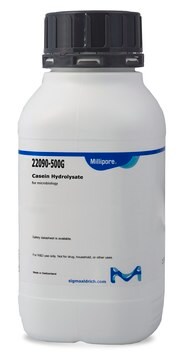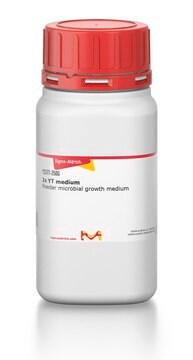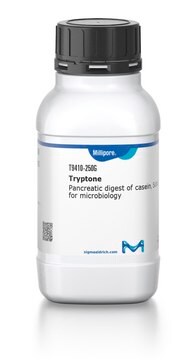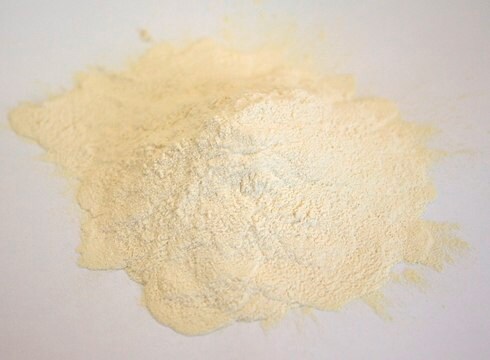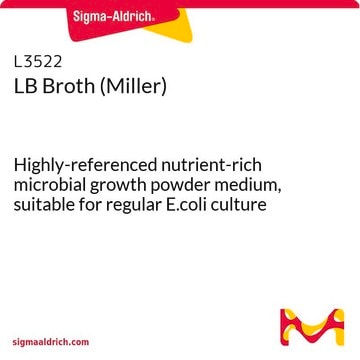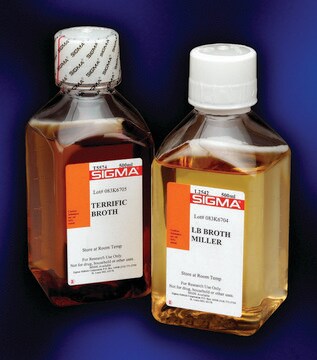N3643
NZCYM Broth
Powder microbial growth medium
Synonym(s):
Broth medium
About This Item
Recommended Products
grade
for molecular biology
sterility
non-sterile
form
powder
composition
Casamino Acids, 1 g/L
MgSO4, 0.98 g/L
NaCL, 5 g/L
Tryptone, 10 g/L
Yeast extract, 5 g/L
technique(s)
microbiological culture: suitable
pH
6.8-7.2(2.2% solution)
application(s)
food and beverages
microbiology
storage temp.
room temp
suitability
nonselective for Escherichia coli
nonselective for coliforms
General description
Application
Features and Benefits
- Standard formulation
- Convenient package sizes
- A budget-friendly alternative to liquid
Reconstitution
Storage Class Code
11 - Combustible Solids
WGK
WGK 3
Flash Point(F)
Not applicable
Flash Point(C)
Not applicable
Personal Protective Equipment
Certificates of Analysis (COA)
Search for Certificates of Analysis (COA) by entering the products Lot/Batch Number. Lot and Batch Numbers can be found on a product’s label following the words ‘Lot’ or ‘Batch’.
Already Own This Product?
Find documentation for the products that you have recently purchased in the Document Library.
Customers Also Viewed
Protocols
General protocols for growth of competent cells in microbial medium.
Our team of scientists has experience in all areas of research including Life Science, Material Science, Chemical Synthesis, Chromatography, Analytical and many others.
Contact Technical Service




